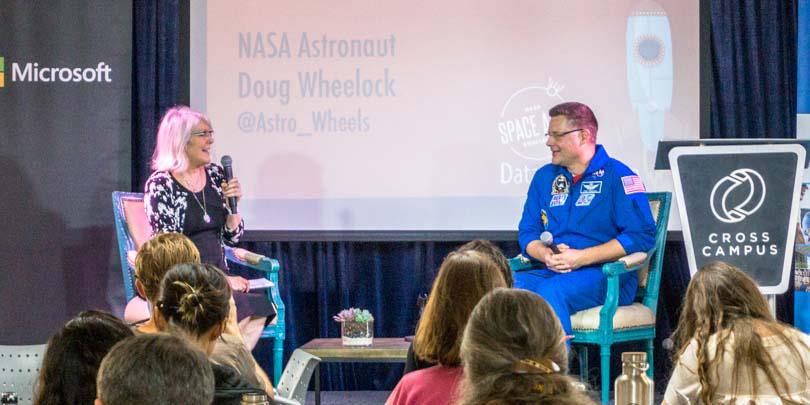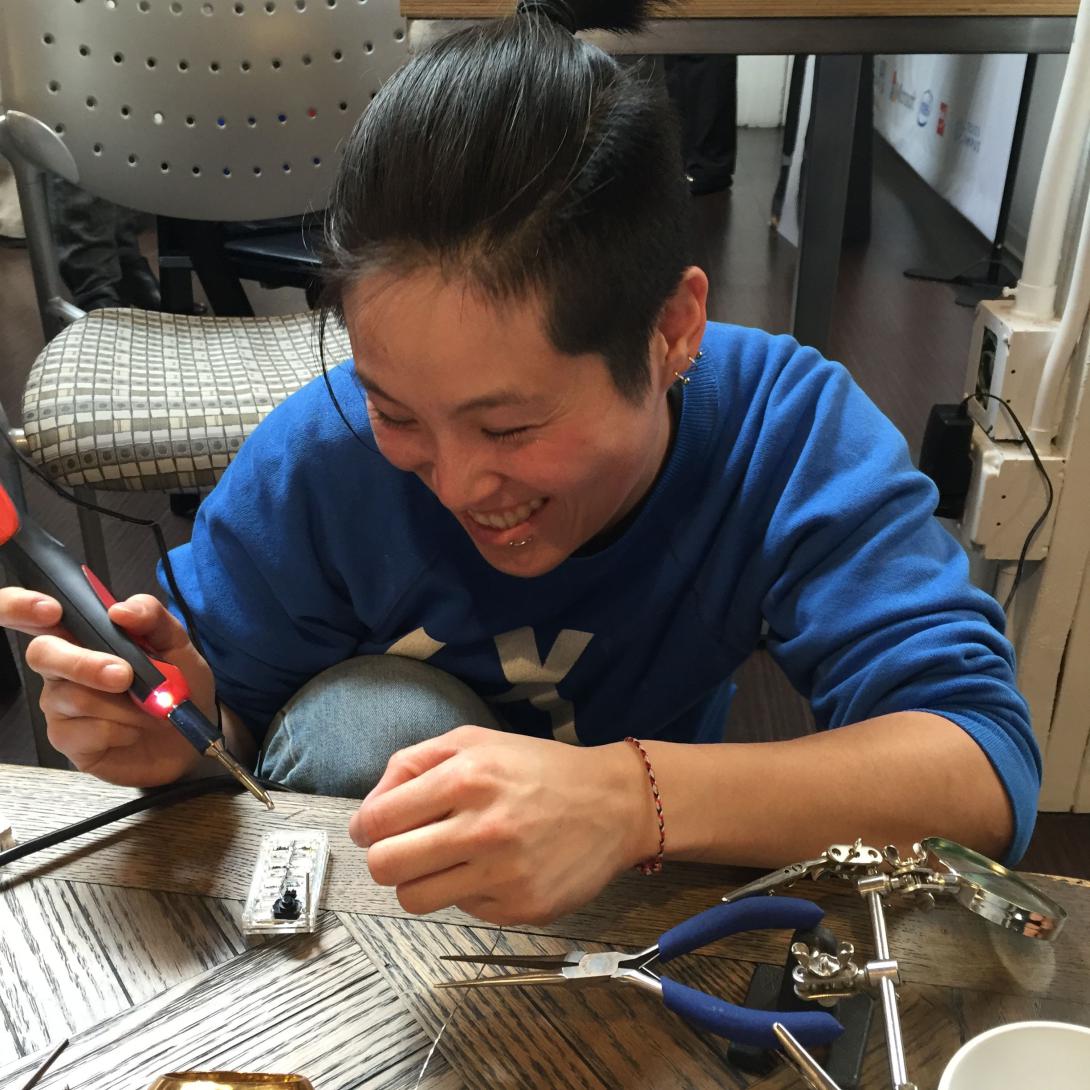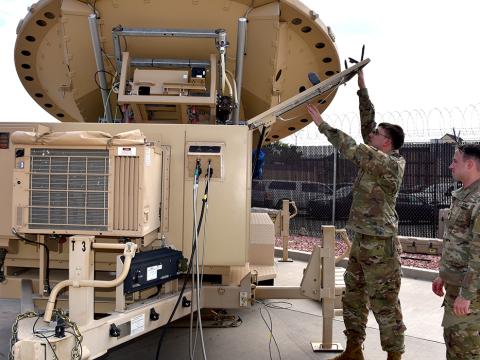Launching Opportunities for Women in STEM—NASA Style
Give women wings, and they will soar, says one leader working hard to launch a new crop of budding scientists, technologists, engineers and mathematicians toward a new frontier. SIGNAL Media and AFCEA International’s Women in AFCEA tackle a multi-month project to highlight women in STEM.
Throughout Beth Beck’s career at NASA, she’s felt like a unicorn among plow horses. “Every time I move my head, I seem to poke somebody. I don’t always think like they do,” jokes Beck, the open innovation program manager in NASA’s Office of the Chief Information Officer (OCIO).
But that might have been why she was selected to lead some of the space agency’s efforts to entice more women and monitories into its folds.
Although women make up nearly half the U.S. work force, they constitute just 24 percent of workers in science, technology, engineering and mathematics, or STEM, the U.S. Census Bureau reports. Experts offer that this imbalance stems from several causes, ranging from the proverbial glass ceiling to antiquated and damaging stereotypes about women’s math and science abilities, issues of women feeling as though they do not belong, sexual harassment, financial concerns and lack of recognition. Some say they feel they had to relinquish their identities to fit in. That should never have to happen, Beck says.
“You’re unique—find a place where you can plug that in,” Beck advises. “You can’t make people appreciate you, but you can find places where your unique contribution will enhance a project, or enhance the team.
“If women are feeling like they’re not appreciated, I do think they have to go find a place where they are. It’s your life, and it’s our job as society to appreciate the different kinds of thinkers.”
Beck and her team launched NASA’s Data Bootcamp, a pre-event program for the space agency’s popular annual Space Apps Challenge hackathon.
Data Bootcamp lowers barriers to entry for hackathon newcomers—particularly women—by introducing them to coding and technology basics. “Data Bootcamp started last year and we used it as a way to introduce concepts—what is code, what is an API, what is a Raspberry Pi, an alligator clip? What does problem solving even look like?” Beck says. “But we’re not dumbing down the technology. We’re focusing on the women who would not come to a hackathon, the women who would not engage with code naturally. We’re focusing on women and girls who have not noticed this as an opportunity.”
The Space Apps challenge is an international innovation program launched in 2012 and dubbed one of the world’s largest hackathon events. The 48-hour challenge takes place simultaneously in numerous major cities across the world.
After the 2014 Space Apps Challenge, the OCIO technology and innovation team saw the need to engage more women in the data space.
But getting them involved wasn’t easy going at first. “My hypothesis going in was that there would be certain topics that women and girls would be interested in, and if NASA would create challenges around those topics, women would flock to it.”
They didn’t.
“I was extremely frustrated and the only pattern I saw was that there was no pattern,” Beck, 60, says. “We were wading into this extremely emotionally charged, politically charged topic of gender.”
And so the message—and its delivery—morphed.
“I have 30-plus years at NASA, and I never wanted to be the ‘woman’ in the workplace,” Beck explains. “That really irritated me. I wanted to be the best employee, not the best woman.”
Lessons learned helped make up a NASA toolkit for women- and minority-inclusion initiatives that has been shared with other agencies and companies. Tips include hosting engagements a day before a big event for women to made advance connections, offering evening get-togethers instead of full weekend events, putting women on the speaker/presenter agenda and offering childcare where possible.
NASA also crated its Datanaut program as part of its Women in Data focus to produce a "safe space" for data newbies, again with a focus on girls and women. Its founding class is all women.
“All of this we’re doing is a grand experiment,” Beck continues. “We’re just trying things out, trying to see how we can engage more women in data and data science, how we can get more women to see that coding and data might actually open new insights for them, new ways to solve problems. It goes back to creating a safe space where they feel recognized, appreciated.”
It’s vital to envelop women and monitories into problem-solving schemes, Beck says. “We’re 50 percent of the population,” she says of women. “Why wouldn’t you want a team that comes with different kinds of thinkers, diverse thinking styles—gender, ethnicity, culture? If we’re not engaging the different kinds of thinkers out there, we’re going to keep coming up with the same solution.”
Join AFCEA now, where for $50 a year, you can make a difference in the STEM community, for women, students and for national security. Read about AFCEA’s programs for women in STEM.
Join us for AFCEA's first women's panel. "Why Are Women Leaving STEM?" begins at 1:30 p.m. on August 3 in the Engagement Theater at TechNet Augusta. The conversation continues during a networking reception immediately following the session courtesy of panel sponsors Walker and Associates and Ciena.






Comment
Amazing
Always happy to see more and more opportunities for Women :)
Comments